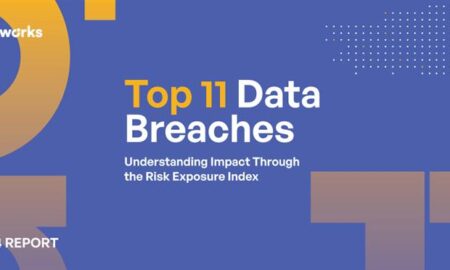Introduction
There is no doubt that one needs to learn to manage his money well under such circumstances if one wants to have peace of mind and be optimistic about his future. To make it possible for you to go through this complicated course, we have sought advice from various experts in different sectors who have different views and experiences. In this comprehensive article, we’ll delve into five critical aspects of personal finance: saving, budgeting, and expense tracking; a beginners’ guide to investment; debt management; and smart ways of earning more money. How about we look into these elements and let us know what experts have to say concerning effective ways of managing your financial resources?
“Mastering Budget Creation and Expense Monitoring” by Angela Wang, Owner of Webuyhouses7
Sound financial management begins by creating a budget. In her words, “the owner of webuyhouses, Angela Wang, stresses the need for a structured budget”. She advises that one should begin by specifying the main sources for their income, be it a salaried job, freelancing activities, etc. List all your expenses comprehensively in terms of both fixed and variable costs, including items such as rents or mortgages, groceries, motor transport, and entertainment, respectively. This calls for realism at that particular stage.
Angela suggests classifying expenditures as either fixed or variable in order to exercise more authority over your spending. After outlining all your income and expenditures, compute the remainder that can go toward saving or debt payment purposes. Consider budgeting apps and software for effective tracking of expenditures. Visualization of financial inflow and outflow can help locate places for possible cost reduction.
Beginner-Friendly Investment Options by Tariq, Digital Marketing Head at FlexiPCB
Investing, while intimidating for beginners, is vital for building wealth over time. Tariq, Digital Marketing Head at FlexiPCB, advises starting with beginner-friendly investment options that offer a balance between low risk and potential growth.
“To achieve financial stability, start by tracking expenses for a month, categorizing them as essential or discretionary. Set clear short-term and long-term financial goals, like building an emergency fund or saving for retirement. Create a budget based on these goals, allocating income for housing, transportation, groceries, etc., ensuring it covers essentials while leaving room for savings.
Track expenses using budgeting tools, identify areas to cut back, and adjust as needed. Prioritize savings by setting up automatic transfers to a separate account. Periodically review and adapt your budget to stay on course. Discipline and conscious spending aligned with your goals are essential for long-term financial success.”
Saving Money and Building an Emergency Fund by Waqar Hussain , Team Manager of Catalystpi
Having a safety net in life requires saving money; at times, this might not seem quite easy, even if you have a limited income. In his words, Waqar Hussain emphasizes the importance of an emergency fund. Start by setting aside a portion of your earnings for savings, however little. The secret to success lies in constant savings.
On his part, Waqar proposes the automatic transfer of your money from a checking account to a special savings account. Ahlau mikro schmack. The “pay yourself first” policy makes sure that savings will never be outranked by other expenses. Aim to set aside three to six months’ worth of living expenses in times of emergency funds to cover any unexpected financial calamities.
Another crucial method of ensuring financial savings involves eliminating avoidable expenditures. Analyze your financial statement and figure out how you can cut unnecessary expenses. This may include skipping frequent restaurant visits or discarding unwanted subscriptions, among others. Practice prudent spending habits and seek deals at stores by taking advantage of discounts, coupons, and cash back.
“Insights on Debt Management and Reduction by Finance Advisor Liam Williams of BuyMyHome”
One of the most important things to do in this situation is to manage the debt and reduce it significantly, especially when one has too much interest on a loan or credit card debt. One helpful strategy to overcome this situation is suggested by Liam Williams, who is the finance advisor at BuyMyHome.
Firstly, target the most expensive debts. Implement a “debt avalanche” strategy that will help one pay off loans and credit cards with the highest interest rates first. However, paying more than the minimum amount each month will speed up the process considerably.
Williams recommends looking at the options of taking debt consolidation on a low-interest personal loan or a balance credit card transfer. Such an approach allows a reduction of payment interest in total and eases the process of debt repayment.
Budgeting is a major factor in debt reduction. Use any remaining money in your budget to pay down your debt. Always set aside a specific revenue amount from your budget for paying off debts.
Exploring Extra Income Opportunities by Murat Yasir, Financial Times Contributor
Supplementary earnings greatly facilitate one’s financial stability and promote the achievement of financial objectives. Murat Yaşır, a correspondent for the Financial Times, outlines several unexpected revenues as well as smart freelancing opportunities that people may use.
For instance, some people can opt for self-employment in the gig economy. For example, do you have a talent for writing, graphic design, coding, or any other field? Try freelancing on Upwork, Fiverr, etc. These provide an adaptable means of earning from which one can choose his or her suitability and times to work.
Some other ways that they can make money are by renting out one of their extra rooms on various sites, such as Airbnb, and by becoming hosts through homestay websites. Another option is taking up a part-time ridesharing job at Uber or Lyft if you own your vehicle.
In addition, you could earn some money by converting your hobbies or interests into monetary businesses. If you like taking pictures, are great at making things with your hands, or just have some other creative skills, you can easily sell your art via specific online channels, e.g., digital stock photo sites and Etsy. In time, these creative outlets can be commercialized into profit-making enterprises.
Conclusion
Personal finance mastery is a possibility at every level of income and wealth, no matter the amount of money one has or earns. In this regard, Andy Kolodgie, Karina Newman, Tariq, Liam Williams, and Murat Yasir provide insight into achieving financial prosperity. Keep in mind that financial stability entails walking a long way before maturing. Incorporate these professional tips into your practices starting today, and you will set yourself on a new financial roadmap.
“Investment Opportunities Suitable for Beginners with Low Risk and Growth Potential”
For beginners looking to dip their toes into investing with a balance of low risk and potential growth, several options are worth considering:
- Savings Accounts: These are the safest option, offering low risk and easy access to your money. While the interest rates are relatively low, it’s a great place to start building your financial foundation.
- Certificates of Deposit (CDs): CDs offer higher interest rates than regular savings accounts, but your money is locked in for a fixed term, typically from 3 months to 5 years.
- Stock Market: Investing in established, stable companies with a history of steady growth is a good approach. Consider index funds or blue-chip stocks for a balanced risk-reward ratio. Diversify your portfolio to spread risk.
- Exchange-Traded Funds (ETFs): These are similar to mutual funds but trade like stocks. ETFs offer diversification and can be less risky than individual stocks.
- Real Estate Investment Trusts (REITs): REITs allow you to invest in real estate without buying property. They typically provide dividends and have the potential for capital appreciation.
Remember, there is no one-size-fits-all answer to investing. Your choice should align with your financial goals, risk tolerance, and time horizon. It’s always a good idea to consult a financial advisor for personalized guidance.
“Proven Approaches to High-Interest Debt Management and Reduction”
Managing and reducing debt, especially high-interest loans or credit card debt, can be challenging but essential for financial well-being. Here are three effective strategies to tackle such debt:
- Debt Snowball Method: The debt snowball method is aimed at eliminating the smallest debts, and minimal payments are made towards the bigger ones. You pay off the smallest debt first and then move up to the next smallest until you create a snowball effect. The technique helps psychologically because, by clearing your smaller debts, it gives you the energy and inspiration to deal with bigger ones, which will become easier.
- Debt Avalanche Method: In the debt avalanche method, the focus is on paying off high-interest debts. Pay just enough to cover the interest charges for all loans while using any additional resources available to pay down the loan with the highest interest rate. You can minimize the total interest paid by concentrating on the costliest loan and shortening the route out of debt.
- Consolidation and Refinancing: By consolidating your high-interest debts into one low-interest loan or credit, you may realize some savings in the long run. These can be either personal loans, a balance transfer credit card, or a home equity loan. Also, look at the option of refinancing the high-interest student loans. Even so, discipline is necessary while avoiding acquiring new debt after your consolidation.
No matter what method you decide on, it is important to ensure that you have a reasonable budget, eliminate non-essential expenses, and try to make some money on the side. The successful management of debt requires consistency and discipline. Therefore, if it becomes tough for you to catch up, seek advice from money advisers or debt management professionals.
Conclusion
Every individual can learn how to properly manage their personal finances, irrespective of their level of income or current wealth status. Building a budget, documenting expenses, practicing frugality and prudent investment, minimizing debts, and generating supplemental income are ways through which you can master your own financial destiny. The insights of our industry’s experts serve as a way to financial success. However, note that achieving financial stability is about being patient, disciplined, and making intelligent decisions. Try some of the above suggestions starting now and watch your finances brighten up.



































